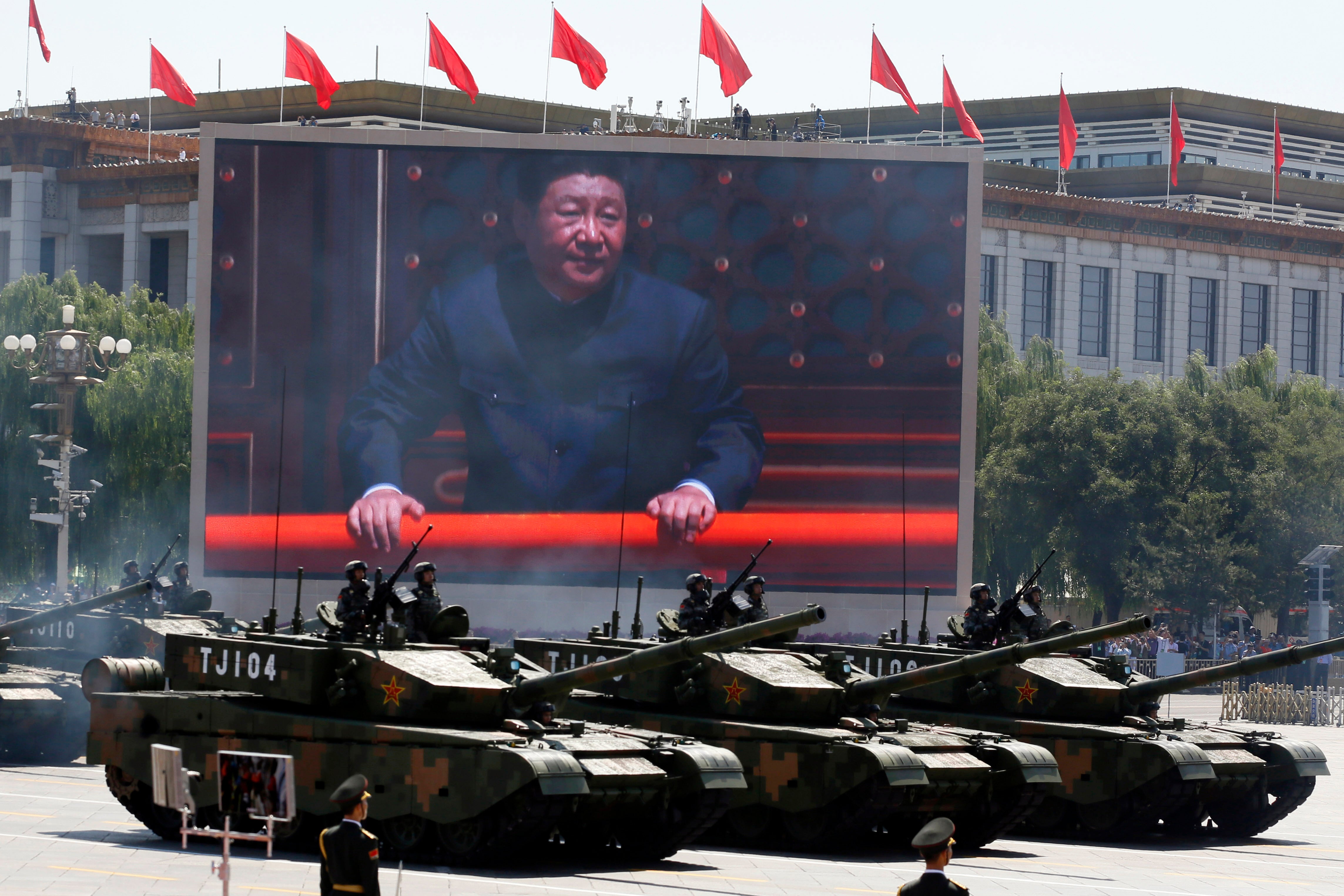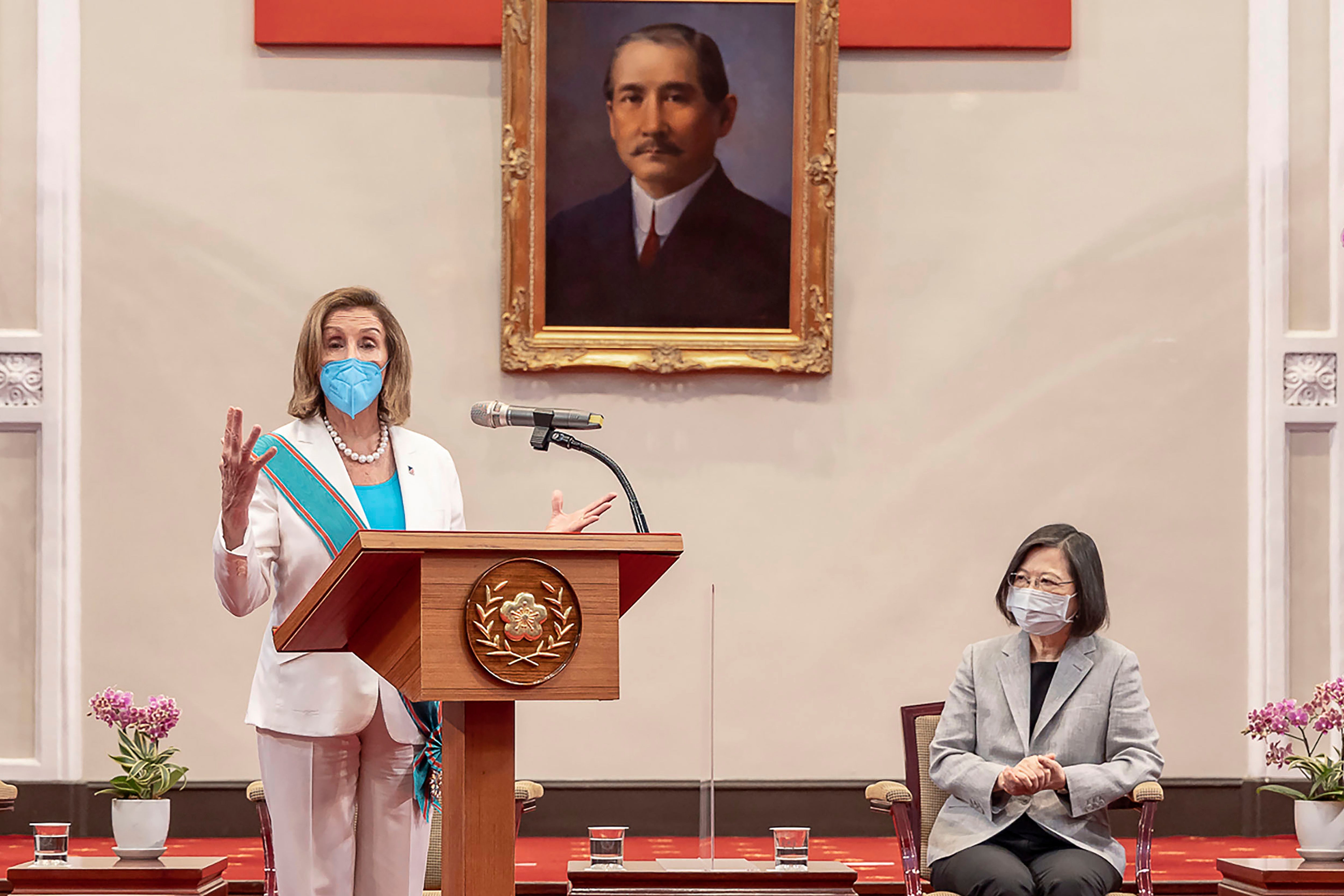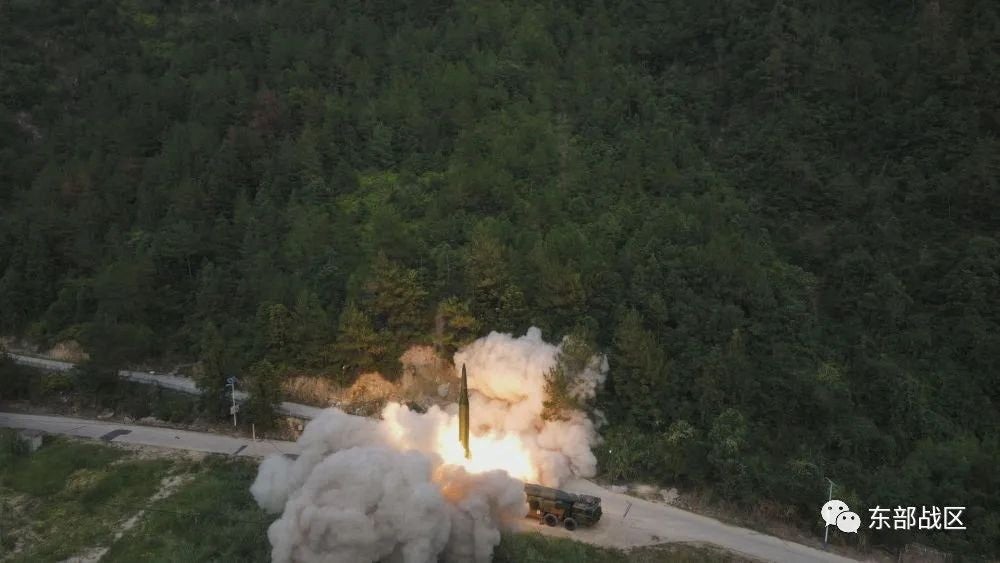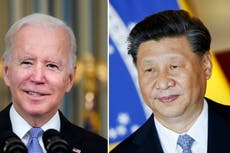Could China-Taiwan conflict escalate to a full blown military crisis?
Experts believe Beijing’s aggression is largely a face-saving exercise, but conflict poses significant costs for Taiwan and the world
Can Taiwan become the next Ukraine? This is a question that defence and foreign policy experts have been pondering over for months, even before Beijing’s military exercises began following Nancy Pelosi’s visit to Taiwan.
The situation has escalated quickly in the last couple of months. US president Joe Biden recently said that the US forces would defend Taiwan in the event of a Chinese invasion, his most explicit statement on the issue.
The comments have been met with strong opposition from China which has taken up the issue formally as a complaint with the US.
The tensions reignited when US House speaker Nancy Pelosi visited Taiwan. China still claims the island nation as its own territory and wants to block any outside interference in. In response, China announced military exercises with live-fire drills that went on for weeks threatening the nation of 23 million people and its $700bn economy.
During this exercise, missiles were fired over the capital Taipei for the first time, drones flew over Taiwan’s offshore islands and warships sailed across the median line of the Taiwan Strait in what the self-governed island’s military said amounted to a practice “blockade”.
The drills disrupted shipping and air traffic substantially for the island nation, and further raised concerns about potential conflict in the region even as the world deals with the global impact of Russia’s war with Ukraine in eastern Europe.
Now with the US coming out in clear support of Taiwan, in what experts view as a shift in Washington’s long-maintained “One China Policy”, the stakes are higher than ever.
But can this conflict in Asia soon turn into a war? Experts are divided over this.
Michael Chang, who managed the 1996 Taiwan missile crisis when he was deputy secretary general of Taiwan’s National Security Council, told local media during the drills that it could be a preview of a Chinese invasion scenario.
Live-fire exercises are a show of military power that involve the use of live ammunition to create training conditions that are as close to real combat scenarios as possible.
Taiwanese officials have clearly stated that a Chinese blockade of island or the seizure of an offshore island would be considered an act of war and Taiwan would not surrender, an unnamed senior Taiwanese security official told Reuters using unusually strong and direct language.
While China’s military capabilities far exceed that of Taiwan and the demonstration of military capabilities is certain to add pressure, the island nation has been preparing for any eventuality and has been living under the fear of a Chinese invasion for decades.
The conflict between China and Taiwan dates back to the era of civil war during Mao Zedong. Chairman Mao founded the People’s Republic of China by winning a civil war in 1949, sending the nationalist Kuomintang government to retreat to Taiwan, which has been self-ruled ever since.
Beijing still views the island as part of its territory and has vowed to eventually unify it with the mainland, using force if necessary.

But the timing of the conflict makes things trickier as it comes when Xi Jinping, China’s most powerful leader since Chairman Mao, eyes an unprecedented third term.
China is also far more formidable now under Mr Xi than it was during the “Third Taiwan Strait Crisis” in 1996, the last time Beijing fired missiles near the island nation.
“Xi doesn’t want to be seen as a leader who is entering into his third term – which is historic – with a hint of weakness, and he wants to go down in history as a leader who unified Taiwan,” Harsh V Pant, a foreign policy analyst at Delhi-based Observer Research Foundation (ORF) tells The Independent.
“So certainly the costs for Taiwan will rise.”
However, he explains that China’s current aggression mainly stems from the fact that Beijing had already “backed itself into a corner” on the issue of US House speaker Ms Pelosi’s visit, which it failed to prevent, and had to seem like it was doing something.
“Once it [China] raised the decibel level so high, it meant that now it had to react,” he says, adding that a full blown war with Taiwan may not be in Beijing’s best interests either.
Observers largely agree that these drills are a domestic face-saving exercise by China to balance the outrage it whipped up over Ms Pelosi’s visit and its failure to prevent it.
Professor Pant adds that Beijing was testing America’s resolve by threatening to escalate the situation over Ms Pelosi’s visit but it knew that its options were limited.
“China also knows that full-fledged war with Taiwan at this stage is something that could be more catastrophic for its own interests,” Prof Pant adds.
There have also been concerns that the US and China can go to war over Taiwan, but experts agree that neither country has the appetite for the tension to escalate so far.
But it does not mean the heightened tensions will not have their own large-scale impact, on Taiwan and on the world, including on ties between the US and China, which are witnessing an unprecedented strain.

Experts say Ms Pelosi’s visit and China’s subsequent response has changed the status quo in the region in the long term.
“I do not anticipate things will escalate further, but rather the new status quo will stay at this level of escalation,” Lev Nachman, a political scientist and assistant professor at National Chengchi University in Taiwan, tells The Independent.
“In the last week, we’ve seen military jet threats move from the Taiwan’s air defence identification zone (ADIZ) to the median line. This is significantly closer to Taiwan and shows China’s intention of raising the stakes of these military threats,” he adds.
In the short term, Taiwan may have to worry about economic concerns more. Chinese military action might not be as straightforward as a full frontal assault on Taiwan: it could include actions like a blockade to try to force Taiwan to accept China’s rule, strategists say.
While experts said trade is working as usual despite the fire drills and looming fear of further tensions, Taiwan was initially left scrambling for alternate routes for aviation and shipments just as Ms Pelosi left on 3 August.
China’s military planners have long discussed a blockade of Taiwan, but until now, they most likely saw practising such a move as too provocative, security experts say. The ability to enforce a blockade would give Beijing leverage to bring Taiwan to the negotiating table during a conflict.

“I doubt there will be a formal trade route blockade... even now we’ve seen trade routes return to normal despite China’s claims that they will continue military drills,” says Mr Nachman.
“The economic factors most likely to happen from this are either from the sanctions imposed by China on Taiwan, or the broader risk perceptions of investing in Taiwan in the short term.”
Overall, Ms Pelosi’s visit, while historic and symbolic of the strongest support from Washington so far, is turning out to be of a considerable cost for Taiwan.
Officials within China are questioning the resolve of the US and its allies to support Taiwan. While the countries have condemned the drills, they did not directly intervene to halt the blockade rehearsal.
“Seeing how the US and its allies responded to the drills, how confident can Taiwan leaders be in counting on them to come to the rescue should the PLA attack?” a former Chinese defence official told Reuters.
But analysts say Taiwan knew the cost it would have to pay and seems to be reacting calmly to the situation.
“In the short term yes, arguably if Pelosi had not come, these drills and sanctions would not have happened, at least not right now,” says Mr Nachman, adding that there is a symbolic value of her visit from Taiwan’s perspective.
“Whether or not the advantages will outweigh the disadvantages, I think time will tell.”
Join our commenting forum
Join thought-provoking conversations, follow other Independent readers and see their replies
Comments




Bookmark popover
Removed from bookmarks